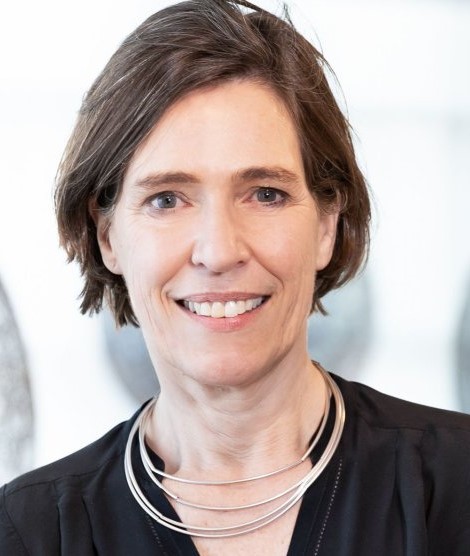Professor Sonja Zweegman, Head of the Hematology Department, and her team will enhance the power of the body’s own immune T-cells to actively combat cancer. They do this by collecting T-cells from a patient and equipping them with an 'antenna' known as the Chimeric Antigen Receptor (CAR), which enables them to recognize a protein on the surface of cancer cells. Subsequently, these modified CAR-T cells bind to the cancer cells for effective elimination.
Multiple myeloma
CAR-T cell therapy, a relatively recent form of immunotherapy, exhibits promise in treating various blood and lymphatic cancers. However, currently, this treatment option is solely available within the confines of clinical trials for the malignant blood disease multiple myeloma.
Despite the emergence of numerous new treatment options in recent years, multiple myeloma remains incurable and invariably relapses, even after CAR-T cell therapy. Dr. Maria Themeli from the Hematology Department, in collaboration with researchers from the Memorial Sloan Kettering Cancer Center in New York, has developed a new technique to endow CAR-T cells not only with a single 'antenna' but with two—referred to as the CCR-CAR-T cell. The additional CCR antenna enhances the CAR-T cell's ability to bind to tumor cells, enabling their subsequent elimination.
Prof. Zweegman expresses her pride in the work accomplished by Dr. Themeli and her team:

From lab to clinic
However, it is important to note that a scientific breakthrough in the laboratory does not directly translate into a therapy available to patients. The journey from the laboratory to clinical application is often long and costly. To facilitate this process, a private sponsor, who prefers to remain anonymous, has stepped forward to assist scientists at Cancer Center Amsterdam.
In collaboration with this sponsor, the Life Science Made Better Foundation has been established. Prof. Zweegman elaborates, "Thanks to this financial support, we can combine academic knowledge with a business-oriented approach, which may provide additional funding throughout the process, expediting the implementation of this innovative idea for the benefit of patients."
16 million euros
The initial allocation of funds amounts to €16 million. While substantial, Prof. Zweegman emphasizes that this financial commitment is necessary to navigate all the essential steps required for the effective deployment of the promising CCR-CAR-T cell therapy.
"To ensure the ultimate application of the therapy in patients, we must meticulously repeat all experiments under strictly controlled conditions within specially designed laboratories. The entire process incurs considerable costs. Thanks to this financial boost, we can accomplish this objective within three years, working collaboratively with a dedicated team in our laboratory—something that would otherwise have been extremely challenging or significantly delayed," says Prof. Zweegman.
Effective, Safe, and Affordable
Cancer Center Amsterdam will also conduct the so-called phase 1 study, which aims to demonstrate the safety of this therapy for patients. In the plans, this is referred to as 'the fast track' and is targeted to be completed by 2025.
Prof. Zweegman explains, "Establishing a phase 1 study within your own institution requires a significant financial investment. That's why we mostly collaborate with the pharmaceutical industry for phase 1 studies. If we can develop it ourselves, it not only becomes an effective and safe product but also a more cost-effective one. It is truly exceptional that we can now conduct our own phase 1 study."
A Remarkable Foundation
The collaboration with the Life Science Made Better Foundation has another remarkable aspect— all the proceeds from the research flow back into the foundation. For instance, if discoveries are sold to the pharmaceutical industry, it creates a revolving fund that can finance future research.
The sponsor aims to save researchers the time they would otherwise spend on applying for financial support for their research. This allows them to focus on what they excel at: laying the groundwork for new therapies that improve the lives of patients, prolonging their lifespan and enhancing their well-being.
Access to Medicines
The involvement of the pharmaceutical industry is inevitable for market introduction. However, the intention is not to sell everything to the pharmaceutical industry. They often invest in the development of new therapies only to demand high prices later.
"It is our societal responsibility as physicians to ensure access to medicines," says Prof. Zweegman. "This access is increasingly under threat. Sometimes there is a valuable therapy, but it takes years to gain approval. That is unacceptable for patients."
One of the scenarios that Life Sciences Made Better is currently developing is to sell the treatment to the pharmaceutical industry, generating more funds for further research while retaining the rights to produce it for the Netherlands.
The Holy Grail
The research group at the Hematology Department is already looking ahead to the future. Currently, CCR-CAR-T cells need to be individually made for each patient using their own T-cells.
A portion of the research funds will be used to derive these cells from an infinite universal T-cell source, making them faster, more cost-effective, and readily available for every patient. This, however, remains a vision for the future.
"But the first steps have already been taken by Dr. Maria Themeli and Dr. Richard Groen to generate T-cells from pluripotent stem cells. This creates an infinite source of CAR-T cell lines in which different receptors can be inserted. This is the future, the holy grail, with a tumor-specific receptor for every form of cancer," says Prof. Zweegman.
For more information, contact Cancer Center Amsterdam.
Header photo: The research team led by Prof. Tuna Mutis, Dr. Dirk Geerts, and Dr. Ingrid Kolfschoten.
See the original article (Dutch) by Jasper Enklaar. Photography: Marlou Pullens.

